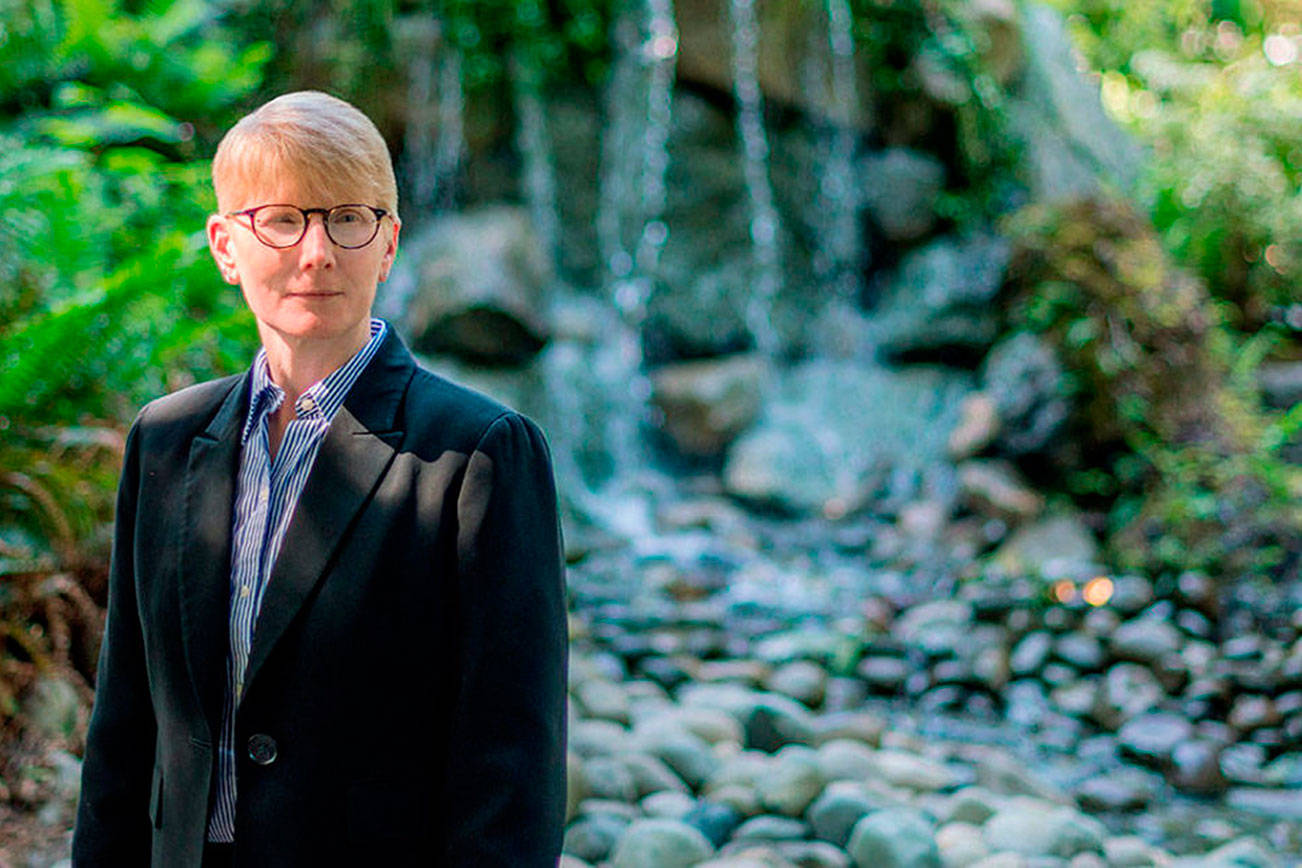By Suzanne M. Johnson, president of Green River College
President Trump recently mentioned to an audience: “I don’t know what that means, community college. Call it vocational and technical. People know what that means. A lot of people don’t know what a community college means or represents.”.
I would like to take this opportunity to share with you – and my community – what community college is, what it means, and what it represents.
According to the U.S. Department of Education, there are more than 1,200 community colleges in the United States. In fact, nearly 40 percent of all undergraduate students in the U.S. are enrolled at community colleges. Tuition at community colleges is significantly less than that of four-year schools: the national average cost per year at a community college is $2,713 compared to the national average of $7,605 at four-year colleges.
In addition, associate’s degrees are themselves valuable from a financial standpoint: according to the Bureau of Labor Statistics, adults with associate’s degrees have an unemployment rate of 3.4 percent, compared to 4.6 percent unemployment for those with only a high school diploma.
Community colleges offer associate’s degrees, which are degrees that require at least two but less than four years of full time study. Many students who earn associate’s degrees transfer to four-year institutions and are able to earn their bachelor’s degrees with considerable tuition savings. Being able to transfer their first two years of coursework indicates that the quality of a community college’s curriculum and programs are comparable to that taken at four-year colleges—and for a fraction of the cost. Those first two years at a community college transfer with the student who then needs only two more years of college to complete a bachelor’s degree.
Green River College graduates transfer to many four-year colleges in our state of Washington and to top colleges and universities all across our nation. How many college graduates get their start at a community college? Among all students who completed a degree at a four-year college in 2015-16, 49 percent had enrolled at a two-year college in the previous 10 years (National Student Clearinghouse Research Center, 2017). That means nearly half of all students who complete a four-year college degree get their start at a community college.
Four-year degrees
Some community colleges like Green River College even offer four-year degrees called applied bachelor’s degree. We have applied bachelor’s degrees in software development, network administration and security, marketing and entrepreneurship, aeronautical science, and natural resources in forest resource management and have two new degrees coming on board this fall in management and early childhood education with a focus on infant and child mental health.
Increasingly, students are enrolling in community college courses while still in high school. In the state of Washington, the Running Start program allows high school juniors and seniors to enroll in college courses tuition-free. Green River College has one of the largest Running Start enrollments in the state. This enables these students to simultaneously earn their high school diploma and an associate’s degree.
A recent study by the Community College Research Center found that Running Start students in Washington go on to obtain college degrees or certificates at higher rates than the U.S. average – and their first two years of college were free and occurred at a community college.
Community colleges also offer vocational and technical training, as you note. For example, at Green River College we offer career and technical degrees in a number of areas including construction, IT, welding, and advanced manufacturing. We also offer certificates aviation technology, nursing, and business marketing and entrepreneurship, just to name a few. These programs enable our students to obtain the skills necessary to enter or re-enter high demand professions that offer family sustainable wages.
Finally, community colleges offer two additional services to our communities. Throughout the year community colleges offer continuing education courses for professional development or personal enrichment as well as courses in English proficiency and high school equivalency to help adult learners transition into college or achieve English language skills to secure employment.
In closing, Nelson Mandela said: “Education is the most powerful weapon which you can use to change the world.” I believe that community colleges, now more than ever, are catalysts for change. We are an essential element for changing the world by providing the bridge for each student who comes to our college.
A community college is not a destination. It is a bridge. Students who come to community colleges on their way to something else whether it is continuing education and personal enrichment, career and technical education for employment or re-specialization, or the foundational years of general education that will lead to a four-year degree or beyond. As a result, community colleges are unique institutions of higher education that serve multiple purposes for many students in their lifetimes.
For students who attend community college, it means that they and their families will enjoy a more stable economic future. Community college represents an entry point to higher education and the lifelong benefits it conveys without prohibitive costs or debt.
Dr. Suzanne M. Johnson is president of Green River College.
Talk to us
Please share your story tips by emailing editor@kentreporter.com.
To share your opinion for publication, submit a letter through our website https://www.kentreporter.com/submit-letter/. Include your name, address and daytime phone number. (We’ll only publish your name and hometown.) Please keep letters to 300 words or less.

